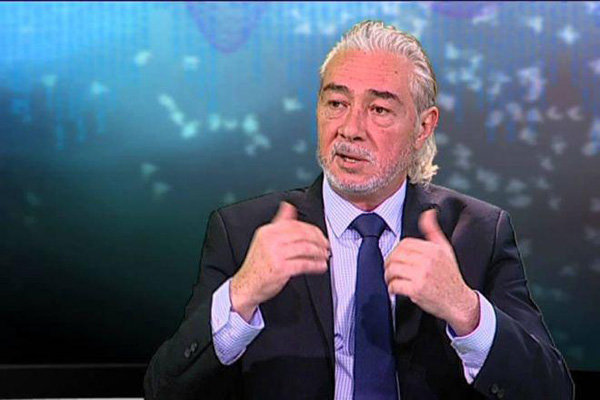After Donald Trump said he would withdraw all US troops from Syria, the Turkish military operation against Kurdish-led forces in northern Syria has been postponed. Currently, the main cast in Syria is assessing the position of their forces to continue fighting the remaining ISIS presence after the departure of the US.
The Mehr News Agency conducted an interview with Syrian Deputy Parliament Speaker Najdat Anzour.
Following is the full text of the interview:
What’s your assessment of Trump’s decision about the withdrawal of US troops from Syria and the region?
This issue should be analyzed from four points. First, there is the resistance and achievement of the Syrian people, second is in the regional dimension where the resistance is strengthened by our friend, Iran. Third, on the world stage, for the return of the East from Russia to China, its political and economic role and its place at the center of the world. Fourth, because of the US roles and their implications for international politics and the future of the United States in international affairs. Therefore, real changes have been made in all of these cases, all of which are the reason for the withdrawal of American troops from Syria.
How do you evaluate US policies vis-à-vis the region, in particular in Syria since Trump took office? Is he just looking at these issues from the point of view of economics and spending for the United States, or are there other goals behind it?
Trump is not just a person, but also an expression of serious frustration with the return and renewal of capitalist crises in the world centered in the United States. Also, institutions such as the Pentagon and the CIA and the lobbies that influence the US are often against Trump. These issues require an in-depth study because they will greatly affect the return of balance to the world, especially in our region.
After announcing the decision to withdraw from Syria, Zionists and Israeli officials threatened Iran with escalating attacks in Syria. How is this possible?
Netanyahu is afraid to put these threats into practice, but repeated violations may be the same as the recent developments in Syria. On the other hand, the axis of resistance is becoming stronger every day.
Given efforts to defend the resistance, we emphasize that the biggest loser is certainly the occupying regime. Also, internal crises in the Zionist regime are on the rise, even if the Zionists express themselves with military power, they still cannot make up for their mistakes.
How do you comment on the role of the coalition between Russia, Iran and Turkey in the political arena?
There is no real coalition of this kind, but Russia and Iran are united, and relations with Turkey are at the level of political consensus that the geographical and natural necessities require joint efforts.
Of course, these understandings are good and essentially formed with the aim of keeping the region from massive wars. The larger test of these understandings is also to stop Turkey from invading Syria, and instead of deploying terrorism, getting Turkey to take up the fight against terrorism. The center of this struggle is Idlib and also the Euphrates.
How has the Syrian military power been progressing in recent years? Are the Syrian forces ready to fight the Zionists to recapture the Golan?
We look at the Golan as a sacred piece of land occupied by the Zionists, and its liberation is not just about the power of the Syrian army. The strength of the Syrian army has advanced considerably. The country depends on the army, the economy and culture.
The goal of all three is to promote Syria. All of this, especially our heroic army, is in a state of increased ability and excellence. Knowledge is at the center of this and, despite all the crises that surround us, we certainly hope for the future liberation of our occupied territories.
Interview by: Mohammad Fatemizadeh
MNA/TT

























Your Comment